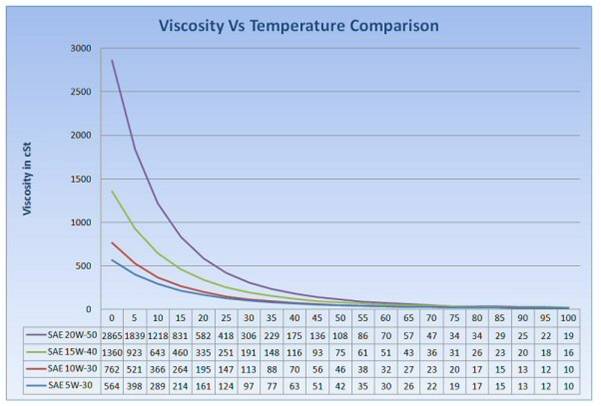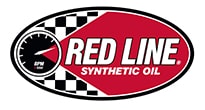Are you convinced that thinner oils are only recommended for better fuel economy ratings? Do you believe thicker oils are better than thinner oils? Or, oil is just oil?

If your not sure about how the SAE viscosity grading system works see our news blog here and get up to speed before reading on.
MYTH: Thicker Oil Reduces Wear
It is widely accepted that more than 70 percent of engine wear occurs at startup. It stands to reason then that if we are interested in engine life then we should concentrate our attention at reducing engine wear at startup.
To understand the importance of viscosity and its relationship to temperature, it may be useful think in terms of being concerned about oil thickening when it cools to room temperature rather than thinning as it gets hot. Oils are chosen by the manufacturer to give the right thickness at the normal operating temperature of the engine. If the manufacturer recommends a XW-30 oil, the engine has been designed to be adequately lubricated by an oil having a viscosity of around 10cSt at 100 C.
One thing we often hear overstated is the impact of ambient temperature on oil viscosity at operating temperature. Most engines are designed to run at around 100 C at all ambient temperatures from the Great Southern to the Kimberley. You can get in your car in Albany in August and drive around Australia arriving in Kununurra in February. The best thing for your engine would be if it was never turned off, you simply kept driving day and night. The oil thickness would be uniform, in the case of a 5W30, it would always be the optimum 10 cSt. This is why taxi engines often last in excess of a million kms.
“It can’t hurt to use one viscosity grade higher, right?”
Let’s say yo
“So, how does it impact performance and fuel economy?”
It takes a lot more time for your oil to reach operating temperature than your cooling system, in stop/start conditions like in heavy peak hour traffic your oil may not reach optimum temperature at all. In addition to the increased friction and drag caused by excessive viscosity the majority of VVT engines use the engine oil as a hydraulic fluid to affect the operation cam phasers. Using heavier viscosity oil in late model vehicles with variable valve timing can adversely impact engine responsiveness and fuel economy. It can also impact timing chain tensioners and hydraulic lash adjusters. While it may be counter-intuitive to some, I have heard many reports of rattly engines becoming quieter after changing to thinner oil. We have automotive workshops regularly tell us stories of customers who call back after a service saying, “what did you do to my car it’s like a new car to drive”, the answer is “we used the right engine oil!”. In some vehicles such as Nissan Pulsar or Honda Accords the difference between a 5W30 and 10W30 engine oil is noticed by vehicle owners.
“What about towing or, extreme temperatures?”
If your vehicles service is likely to see sustained high RPM operation, or heavy loads such as towing special consideration may be necessary. In most cases consider using a high quality synthetic product of the appropriate viscosity. For example if your vehicle originally recommended a mineral 10W30 for normal driving conditions, consider using a 5W30 Full Synthetic such as Kendall GT-1 Euro 5W30.
So, always use the oil viscosity recommended by the vehicle manufacturer. If in doubt or you have some peculiar driving conditions that you think you may need to take in to account, please call us at Oil & Energy, we are always happy to assist!






